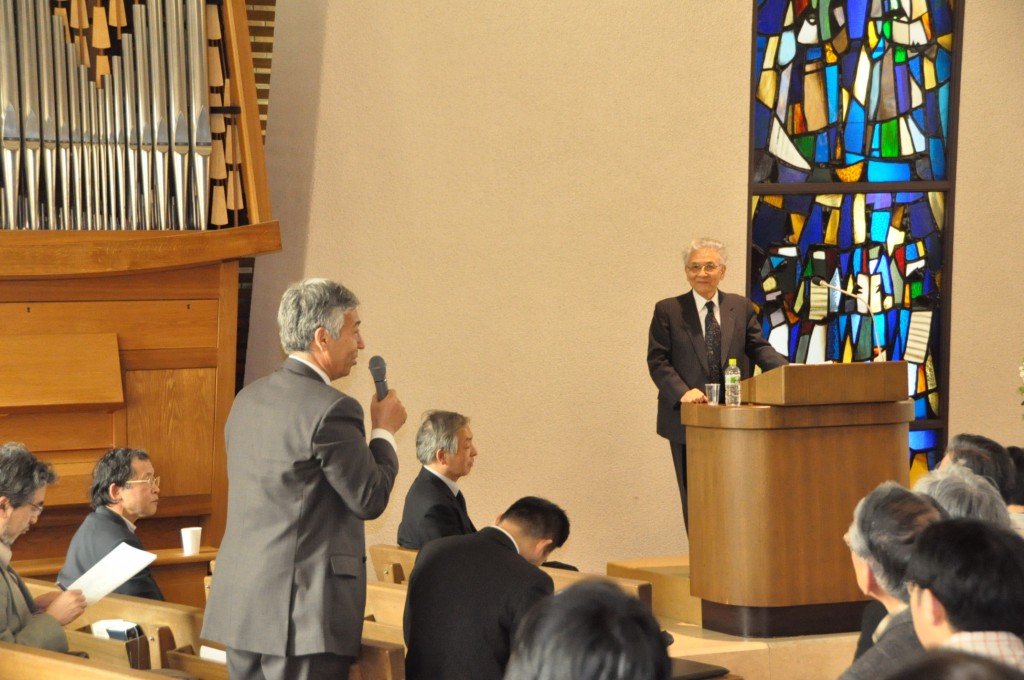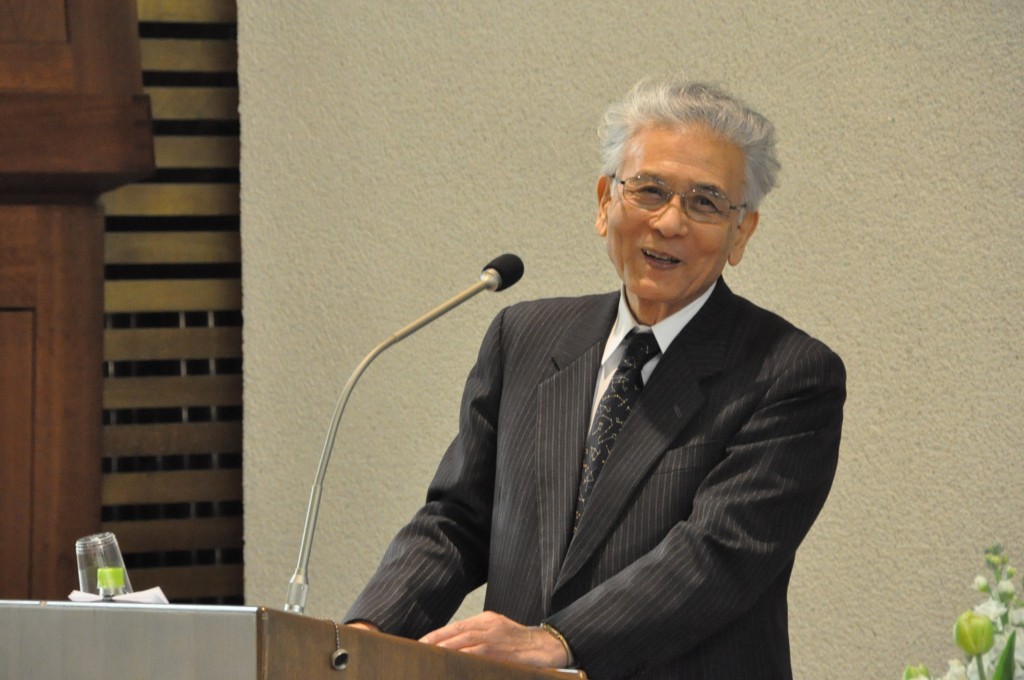Center for Interdisciplinary Study of Monotheistic Religions(CISMOR)Doshisha University
> Public Lectures > The Coptic Circumstances under the Arab Islam Conquest of Egypt in the Seventh Century – A Reflection on Co-existence of Today-Public Lectures
Public Lecture by Project #1
The Coptic Circumstances under the Arab Islam Conquest of Egypt in the Seventh Century – A Reflection on Co-existence of Today-
| Date: |
2010/03/13 13:30 - 15:30 |
|---|---|
| Place: | Divinity Hall Chapel, Imadegawa Campus, Doshisha University |
| Lecture: | Moritada MURAYAMA, Pastor, United Church of Christ in Japan |
| Summary: | |
|
Mr. Moritada Murayama, the lecturer, was sent to Egypt by the United Church of Christ in Japan in 1964, where he worked as a missionary at the Coptic Evangelical Church until 1968. In this lecture, he gave an account of the situation surrounding the Coptic Church in Egypt before the arrival of Islam. It is a well-known fact that Christianity was made legal in the Roman Empire by the Edict of Milan in 313 A.D. In the wake of this edict, the Roman emperor (Eastern Roman Empire) was placed under political pressure to unify Christian churches throughout the territory of the empire. The Council of Chalcedon, which was convened in A.D. 451, was intended not as a venue to simply discuss Christian doctrine, but as a venue for the emperor to approve and adopt the agenda that had been proposed in advance. There, the Roman emperor and the Patriarch of Constantinopolis, the imperial capital, took the initiative and declared Diascoros, the Patriarch of Alexandria who represented Egypt, a heretic. In this council, the political stance—whether to support the emperor or not—was given much importance when discussing Christian doctrine. Consequently, Egypt had two patriarchs: one was approved by the emperor (the church of this patriarch developed into the Greek Orthodox Church in a later age) and the other was selected by the people of Egypt (the Coptic Church). The Coptic Church of Egypt was thus labeled as being anti-emperor and anti-Chalcedon from the beginning, and had to endure its defensive and inferior position vis-a-vis the Roman Christian world until the arrival of Islam. The conflict between pro-emperor and anti-emperor groups continued after the Council of Chalcedon, and the political situation of the Roman Empire had remained unstable during the reign of Emperor Mauricius and the following reign of Emperor Phokas, who launched a coup in Constantinopolis. Throughout this period, the Coptic Church of Egypt managed to protect its seat as the Patriarch of Alexandria. From 619 to 629 A.D., Egypt was placed under the rule of the Sassanid Empire, in which the Coptic Church was protected and Coptic people enjoyed freedom. However, after the Roman Emperor Heraclius drove the Persians out of Egypt, the Coptic Church was subjected to persecution—which is said to have been most severe since the age of Emperor Diocletianus. The pro-emperor patriarch, with the backing of the Roman emperor, was given the same position as that of the governor who ruled the entire territory of Egypt, with his military, financial, and administrative power, and then persecuted the Coptic people. To escape from persecution, Abba Benjamin, the then-Coptic patriarch, had to hide in the desert for 10 years. It was against this backdrop that the Coptic Church had to endure such a difficult experience prior to the arrival of Islam. The Coptic people have since lived peacefully with Muslims in Egypt for a centuries-long period. This fact means that such a lifestyle is so natural for them that they do not even need the inter-religious “dialogue” that is drawing greater attention recently. Mr. Kazuo Tsuda, a pastor of Osaka Kujo Church, who was present at the lecture as a commentator, said that when he visited a Christian church in Syria, he had the same impression about the social environment surrounding the church, and that the world of the Bible or the Christian churches in the earlier period had built their identity so firm that it was not shaken by changes in governments or rulers, and this identity has been preserved for centuries and is alive in Syria and Egypt still today. Kenichiro Takao (Graduate Student of School of Theology, Doshisha University) |
|
| *This lecture is given in Japanese. *Admission Free, No reservation necessary *Inquiry: 075-251-3972 (CISMOR) | |
|
Program |
|

